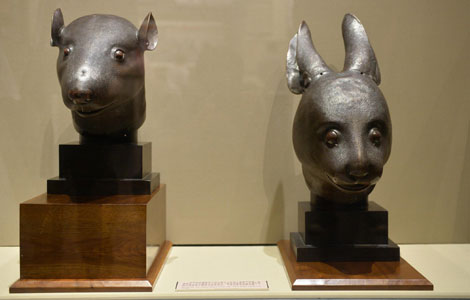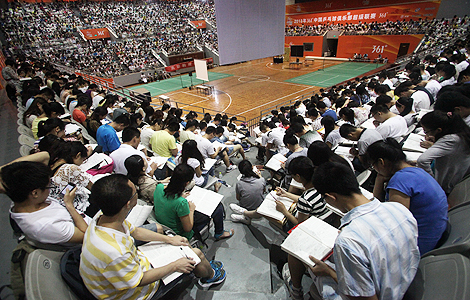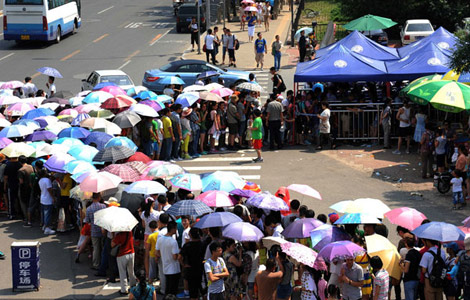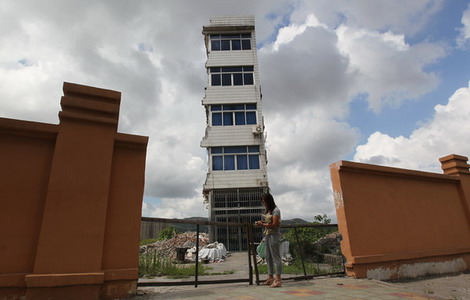

The digital age may close the book on bookstores. The final chapter approaches for many of these temples of literature, where enlightenment was just a page away and young and old spent entire afternoons buried deep in concentration.
 |
|
Two visitors read e-books at the 17th Beijing International Book Fair in this file photo taken August 30. [Su Luzhang / For China Daily] |
That was another era. Today, the country's bookstores need a miracle if they are to survive the next 10 years, many believe.
Thanks to rising rents and the boom in discount Internet deals, just half of the independent bookshops doing business in 2000 are still open, according to figures from the China Booksellers and Publishers Association.
And about 80 percent of those left will also bite the dust within a decade, predicted Cai Ling, a culture and communications analyst with Zhongtou Consultants in Shenzhen, Guangdong province.
Although most contacted by China Daily agreed stores need urgently to modernize and diversify, many added that only by harnessing the power of the Web will more businesses stay afloat.
"Bookstores can't survive if they ignore the power of the Internet," said Guo Zhiying, manager of the Guangzhou branch of the China National Publications Import and Export Corporation. "The key is finding a solution on how to work together."
Barnes and Noble, the world's largest bookstore chain, was the latest to join the list of troubled brands on Aug 3, when it released a statement announcing it was "reviewing strategic alternatives", which included the possible sale of its assets.
 |
|
A saleswoman shows the functions on a digital device to two teenage girls in Qionghai, a city in Hainan province. Traditional bookstores face challenges from online rivals and e-readers. [Meng Zhongde / for China Daily] |
Executives say the United States-based company is suffering a chronic decline in sales and shrinking cash flow.
The announcement followed a series of high-profile closures throughout China in recent years, including Beijing's Disanji Bookstore, the country's largest private bookshop in January, and the Guangzhou branch of Sanlian Bookstore in July, as well as Mingjun Bookstore and Scholar Books in Shanghai.
More than 600 outlets owned by Xishu Bookshop have also either been closed or re-branded since February 2009.
"Since last September, I have felt a real chill in the market," said Qu Huazhang, who owns Red Leaf Bookstore in Guangzhou. "Many bookstores have been going under due to financial losses."
However, Guo said the country's publishing market is far from "shrinking to nothing". Statistics show sales have remained relatively steady, which suggests it is not the desire for books that has changed but the way people buy them.







